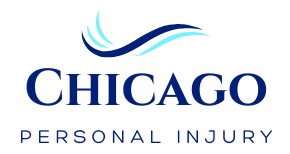Rear-end collisions are among the most common types of car accidents in Chicago, especially during rush hour traffic on the Dan Ryan, Kennedy, Eisenhower, and Lake Shore Drive. While many people assume the rear driver is always at fault, Illinois law allows for multiple factors to determine liability. If you’ve been injured in a rear-end collision, knowing how fault is assigned can make the difference between a denied claim and full compensation.
At Chicago Personal Injury, our attorneys handle car accident cases daily, including rear-end crashes that leave victims facing medical bills, lost income, and long recoveries. Below, we break down how fault is determined, what evidence matters most, and why working with an experienced Chicago car accident lawyer can protect your rights.
Why Rear-End Collisions Are So Common in Chicago
Chicago’s roadways are notorious for congestion, frequent construction, and sudden stops. From packed interstates like I-90/94 to downtown intersections along Michigan Avenue, the city’s traffic creates conditions where rear-end crashes happen often. According to the Illinois Department of Transportation, rear-end collisions make up a significant percentage of traffic accidents statewide.
Common scenarios include:
- Stop-and-go traffic where a driver isn’t paying attention and slams into the vehicle ahead
- Following too closely on highways or exit ramps
- Distractions like texting, GPS use, or in-car technology
- Sudden lane changes or merging onto busy expressways
- Weather-related hazards like slick or icy roads
Is the Rear Driver Always at Fault?
While it’s true that the rear driver is often presumed at fault for failing to maintain a safe distance, this is not always the case. Illinois follows a modified comparative negligence rule (735 ILCS 5/2-1116), which means fault can be shared between drivers. If you are found more than 50% responsible for the accident, you cannot recover damages. If you are 50% or less responsible, your compensation is reduced by your percentage of fault.
Situations Where the Lead Driver May Share Fault
- Sudden and unnecessary stops: If the front driver brakes unexpectedly for no reason, they may share liability.
- Faulty brake lights: A driver without functioning brake lights could be partially at fault if the rear driver had no warning.
- Improper lane changes: If the front vehicle cuts into another lane too closely, leaving no time to stop, liability may be disputed.
- Backing up: If the lead driver reverses into the car behind them, fault usually shifts entirely to the lead driver.
Evidence That Determines Fault
Establishing who is responsible for a rear-end collision requires a careful review of evidence. Our legal team gathers and analyzes all relevant details to build a strong claim, including:
- Police accident reports from the Chicago Police Department or Illinois State Police
- Photos and videos of the crash scene, skid marks, and vehicle damage
- Witness statements
- Traffic or dash camera footage
- Black box (EDR) data from vehicles involved
- Medical records linking injuries to the accident
Because insurance companies often try to shift blame, having clear documentation is essential to prove your case and secure compensation.
Common Injuries in Rear-End Collisions
Even at low speeds, rear-end crashes can cause serious injuries. Some of the most common include:
- Whiplash and soft tissue damage
- Concussions and traumatic brain injuries
- Back and spinal cord injuries
- Broken bones or fractures
- Facial injuries from airbags
- Internal bleeding and organ damage
These injuries can require weeks or months of treatment, and some victims are left with lasting disabilities. That’s why pursuing full compensation for both economic and non-economic damages is so important.
Compensation Available After a Rear-End Collision
If you’ve been injured in a rear-end crash in Chicago, you may be entitled to recover damages such as:
- Emergency medical care and hospital bills
- Physical therapy and rehabilitation
- Lost wages and reduced earning capacity
- Pain and suffering
- Emotional distress and PTSD
- Vehicle repair or replacement
If the accident results in a fatality, surviving family members may also pursue wrongful death damages, including funeral expenses and loss of financial support.
What to Do After a Rear-End Collision in Chicago
Your actions immediately after an accident can protect your health and your legal rights. Here’s what you should do:
- Call 911 and ensure a police report is filed.
- Seek medical attention, even if symptoms seem minor.
- Document the scene with photos and videos.
- Collect driver and insurance information.
- Get witness names and phone numbers.
- Avoid giving recorded statements to insurers before speaking with a lawyer.
- Contact Chicago Personal Injury as soon as possible.
How Our Chicago Car Accident Lawyers Can Help
Rear-end collisions may seem straightforward, but insurance companies are skilled at minimizing payouts or blaming victims. Our attorneys at Chicago Personal Injury know the tactics insurers use and how to fight back. We handle every detail of your case, from collecting evidence to negotiating settlements or taking your case to trial if necessary. We’re available 24/7, and you don’t pay unless we win.
Time Limits for Filing a Claim
In Illinois, you typically have two years from the date of the accident to file a personal injury lawsuit (735 ILCS 5/13-202). If your claim involves a government agency or public entity, the deadline may be shorter—sometimes just one year (745 ILCS 10/8-101). Missing these deadlines can prevent you from recovering any compensation, so it’s crucial to act quickly.
Speak With a Chicago Car Accident Lawyer Today
If you’ve been injured in a rear-end collision, don’t try to handle the claim on your own. Chicago Personal Injury will investigate your case, deal with the insurance companies, and fight for the compensation you deserve. We’re open 24/7, and consultations are always free. Call today or contact us online to get started.
